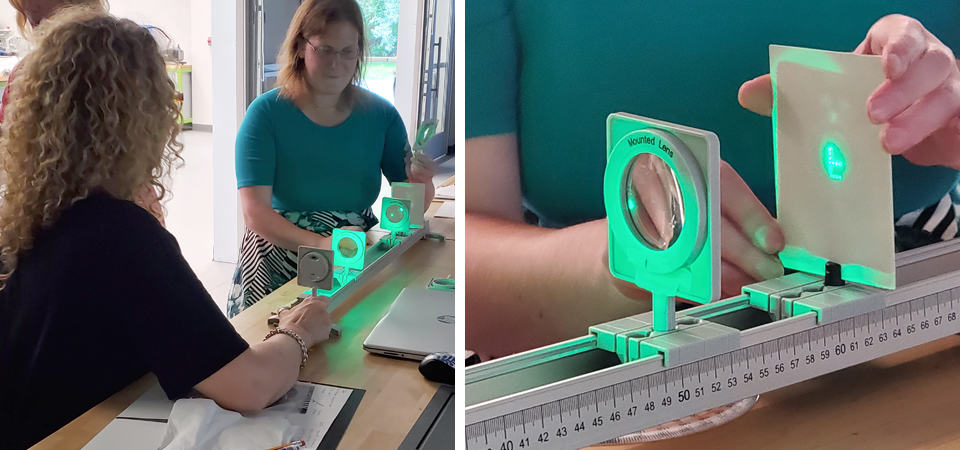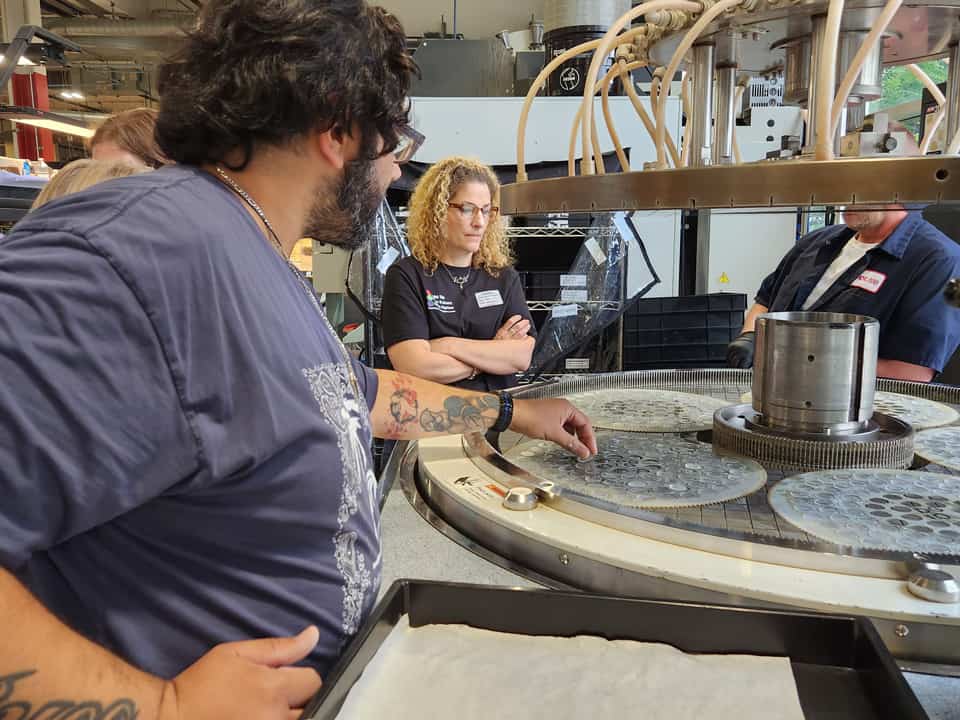High school students may be on summer vacation but many science teachers were back in the classroom this month learning how to teach optics. Sussex County Community College (SCCC) hosted the Careers in Optics Technology Professional Development Workshop in collaboration with AmeriCOM. This first-of-its-kind workshop was one more AmeriCOM initiative to strengthen the nation’s optics manufacturing base.

Science teachers from New Jersey participated in the program which started with a basic introduction on the prevalence of optics and the demand for skilled optics technicians. “Many teachers aren’t aware that the optics manufacturing industry offers viable, fulfilling careers for their students,” said Donna Smith, Education Liaison, AmeriCOM. “Once teachers learned about the importance of the optics industry, they immediately recognized optics could be a great path for their students who may not consider a traditional four-year college.”
Smith introduced the teachers to AmeriCOM’s online Resource Center, which includes curriculum, education tools, and classroom assignments – everything a teacher could need to teach optics in a high school classroom. The Resource Center also includes fun videos and activities for younger students from grades 1-8.
Brian Lake, Supervisor of the Optics Technology Program at SCCC, led teachers on a tour of the college’s optics lab and talked about how the program prepares students for immediate careers. “There are many manufacturing companies across New Jersey ready to hire precision optics technicians,” Lake said. “The more high school students we can feed into our program, the more we can help local employers fill those jobs.”

Jennifer Nicholson was the first to register for the three-day workshop. Though she currently teaches optics at Sussex Tech High School, she wanted to learn more about how she can better prepare her students for this career path.
“I loved all of the hands-on activities like the metrology lab and the mirror maze activity,” Nicholson said. “I got a lot of new ideas that I know will help get my students hooked on optics.”
Jennifer Nicholson
Smith said she hoped teachers would take away four key lessons from the workshop:
• Optics provides great career opportunities for their students.
• Teaching optics is doable in a high school classroom.
• Manufacturing companies have a huge need for technicians.
• Teachers might initiate a dual-credit program at their schools to enable high school students to gain college credit at SCCC or other community colleges around the country.
Also in July, Smith helped organize and teach a second workshop at Colorado’s Front Range Community College (FRCC) with Dr. Amanda Meier, Optics Technology Program Director at FRCC. Teachers at both workshops received Continuing Education credit for their participation.